Self-leadership Benefits:

By developing your self-leadership, you can:
- Be more efficient and effective
- Increase your productivity
- Reduce stress and increased resilience
- Have Personal Power and Unshakeable Confidence
- Demonstrate Executive Presence
- Live an authentic life

Organizations that adopt and promote a self-leadership culture experience:
- Greater employee engagement
- Effective collaboration and readiness for change
- Increased responsiblitiy and a growth mindset
- Self-leaders who are more motivated, productive, and creative
- Better organizational performance

Everyone can practice self-leadership, but not everybody does. The good news is that we can all apply self-leadership strategies and become the best version of ourselves.
The practice of self-leadership involves constantly developing both the 'inner game' (mindset) and the ‘outer game’ (action).
The inner game consists of Intention, Self-awareness, Self-confidence, and Self-efficacy (self-belief) to achieve Personal Mastery, whilst the outer game consists of influence and impact.
Why is Self-leadership so Important?
Self-leadership, also known as Personal Mastery, is the key to developing ourselves to survive and thrive in a Volatile, Uncertain, Complex, and Ambiguous (VUCA) world.
In this current age of AI, individual and organizational learning has become the only sustainable advantage.
Watch this video to hear why you should develop your self-leadership.
"Organizations learn only through individuals who learn. Individual learning does not guarantee organizational learning.
But without it, no organizational learning occurs."
_
Peter Senge
The Founder of Self Leadership International
Andrew Bryant founded Self Leadership International in Australia, 1999.
He had always been curious about mindset and human performance, dating back to his early work as a physiotherapist.
Enhancing his experience with further studies in acupuncture, hypnosis, neurolinguistic programming, and neurosemantics, he created an early framework to increase performance.
This early framework was first refined through coaching business executives and entrepreneurs, and then his work came to the attention of Dr. Ana Kazan from Brazil.
Ana had studied self-management in the U.S.A., and together they researched and wrote, 'Self Leadership: How to Become a More Successful, Efficient, and Effective Leader from the Inside Out' (McGraw-Hill, 2012)
Andrew has since authored other books, and his latest work is 'Potential-ize: How Leaders Unlock Human Potential in the Age of AI' (Wiley 2026).
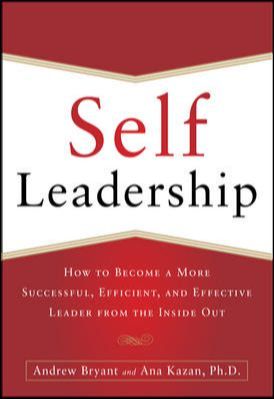
For leaders looking for a plan of ‘Why, What, and How’ to become a better leader, the answer is between the covers of this book.
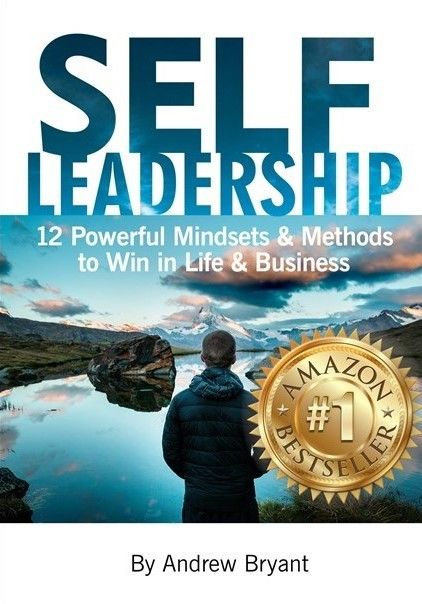
Start your journey to self-leadership, discover the mindsets & behaviors to win, in life & business.
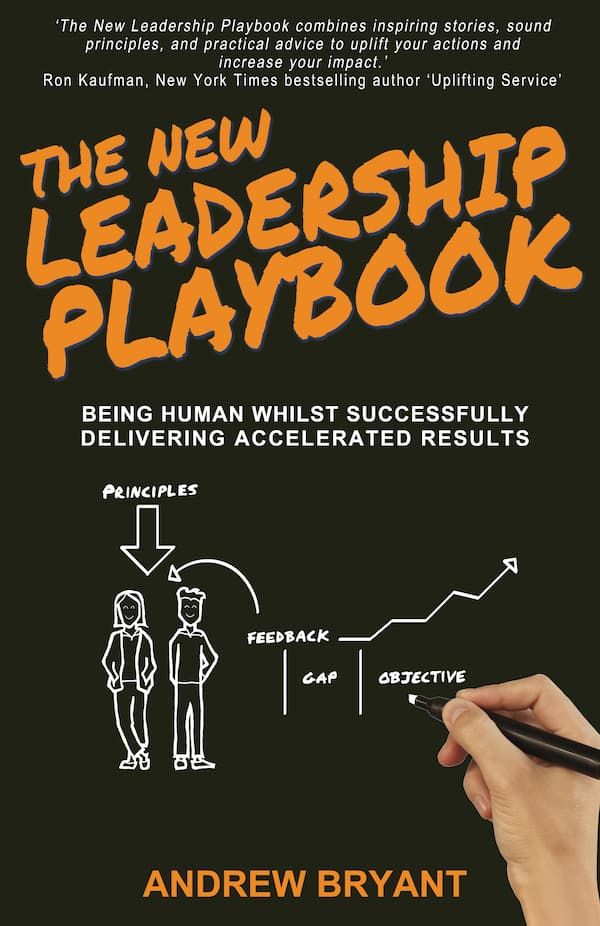
A practical guide to being human and understanding people, whilst simultaneously driving for accelerated results.
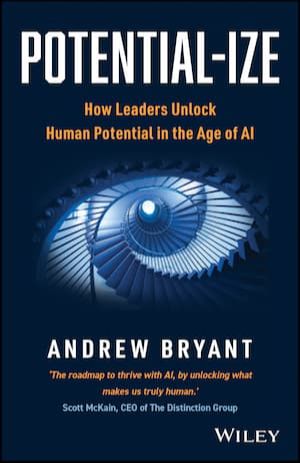
Renowned self-leadership expert Andrew Bryant delivers a roadmap to understanding and unleashing human potential in an age of AI.

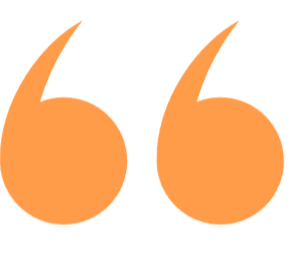
Self-leadership is the practice of intentionally influencing your thinking, feelings, and actions toward your objectives.
_
Bryant and Kazan (2012)
Charles Manz was the first to use the term 'Self-leadership' in 1983 and defined it as; “a comprehensive self-influence perspective that concerns leading oneself".
Peter Drucker (2010) said that being a Self-leader is to serve as chief, captain, or CEO of one's own life, and Brian Tracy talks about setting a goal and taking full responsibility for that goal.
Andrew Bryant has developed psychometric tools to measure, and therefore develop, the 3-core competencies of self-leadership:
- Self-awareness is the tendency for an individual to focus on and reflect on their own psychological processes and inner experiences as well as their relationships with others.
- Self-learning is the process by which individuals take the initiative, in diagnosing their learning needs, goals, resources, and outcomes.
- Self-regulation is the process of modulating attention, emotion, and behavior to a given situation/stimulus, for the purpose of pursuing a goal.
For example, as you read this page, what is your inner narrative about yourself as a leader?
Have you considered the areas where you need improvement? Are you committed to enhancing your leadership skills?
Self-leadership and The Future of Work

Developing self-leadership has been identified as important for the future of work. Research by the McKinsey Global Institute has examined the types of jobs that will be lost, as well as those that will be created, as automation, AI, and robotics become more prevalent. It has also inferred the type of high-level skills that will become increasingly important as a result.
The research identified 56 Deltas ( a mix of skills and attitudes) across 13 skill groups and four categories. Digital fluency is not a surprise, but self-leadership accounts for 25% of the skills required. Additionally, cognitive and interpersonal skills are enhanced through the practice of self-leadership.

SELF-LEADERSHIP ACCELERATOR
Invest in yourself and transform your life with powerful mindsets and strategies to achieve success in both life and business.

EXECUTIVE PRESENCE
ACCELERATOR
Discover the 6 strategies to stop being overlooked. Feel more confident and start your Senior Leadership Journey.

C-SUITE ACCELERATOR
Find out the traits C-Suite Executives have in common and how to develop them. Not where you want to be in your career? You need to change something.

Relevant, Resourceful, and the Right Person to go to in this Current Crisis, that’s how I would describe Andrew Bryant."
_
Nick Jonsson, MD EGN Asia









